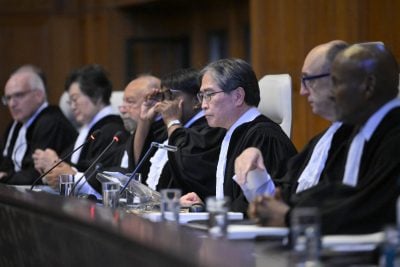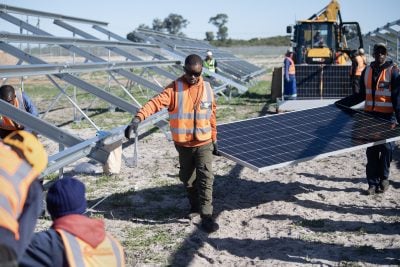Chinese footprint
The Lapsset financing agreements with China have been sealed in an era when they are aggressively chasing deals across the country.
Three Lapsset projects are being handled by Chinese companies: construction of the first three berths by a consortium associated with the China Road and Bridge Corporation at a cost of $484m; the standard-gauge railway by China Communications and Construction; and the Grand Falls Multipurpose Dam project by China State Construction Engineering Corporation.
The Greenfields terminal at Jomo Kenyatta International Airport is also being handled by a Chinese firm, Anhui Construction.
According to State House Kenya, about 50 Chinese companies have been contracted for 80 projects with a value of $2bn in sectors including transport, housing, water processing, power upgrading, energy, and ports and airports.
Auditing firm Deloitte estimates that China funds 17% of East Africa’s construction and that they build 19% of it.
The trend is replicated across the continent, and in 2013, Sino-African trade stood at $210bn, according to Beijing, with this figure projected to rise to $400bn by 2020.
China’s project management strategy has, however, come under scrutiny because of a heavy reliance on Chinese labour and reluctance to transfer technological knowledge to the locals. This prompted an outcry during the construction of the Thika superhighway, and China Wu Yi was forced to bring in some Kenyan manual workers.
The building of Nairobi’s tallest office block, the 40-storey Hazina Trade Centre Towers, also attracted media attention after China Jiangxi International contested the award of the tender to a local developer. The disagreement highlighted growing antagonism between local and Chinese developers, and came just months after Kenyan traders took to the streets to protest the influx of Chinese hawkers peddling cheap wares.
Such discontent in the face of growing immigrant communities is not unique to Kenya but it sours the high-level agreements being signed between Nairobi and Beijing.
Contested field
For a while it seemed as if Western countries were locked out of the Lapsset project, even though the World Bank, African Development Bank and European Union funded the roads linking Kenya with South Sudan and Ethiopia. Before the end of his term, former President Mwai Kibaki was prompted by the Japanese to introduce the Lapsset project to investors from other countries, and he also wooed investments by South Korea and Brazil.
In mid 2013, three South African banks expressed an interest in funding Lapsset, according to LCDA CEO Kasuku, and in the same year, Japanese trading company Toyota Tsusho tendered for construction of the oil depot and pipeline. The LCDA has also alluded to talks with the government of Spain to set up a desalination plant.
In 2014 there has been a similar pattern of interest from foreign investors. In March, Chinese news network Xinhua reported that President Kenyatta had met the Aeolus Kenya and Manda Bay Consortium to discuss a $3.29bn investment in building three berths at Lamu, an 850 megawatt gas-fired power plant, Lamu International Airport, Lamu-Isiolo highway and a water desalination plant.
The consortium is a group of Kenyans with backing from Nairobi’s US embassy, US conglomerate General Electric, Spanish energy firm Iberdrola, Norwegian gas company Hoegh LNG, AKL Wind Energy, transport solutions provider Indra Systems and independent power producer Aeolus Kenya.
And a month later, during his visit to Qatar, President Kenyatta mentioned how Qatari money was already plugged into Lapsset.
But despite the interest expressed by foreign investors, no deals seem to have been finalised. While there is much promise that other governments will eventually weigh in on the Lapsset corridor, for the moment it continues to be an all-China affair.
Want to continue reading? Subscribe today.
You've read all your free articles for this month! Subscribe now to enjoy full access to our content.
Digital Monthly
£8.00 / month
Receive full unlimited access to our articles, opinions, podcasts and more.
Digital Yearly
£70.00 / year
Our best value offer - save £26 and gain access to all of our digital content for an entire year!

 Sign in with Google
Sign in with Google 


